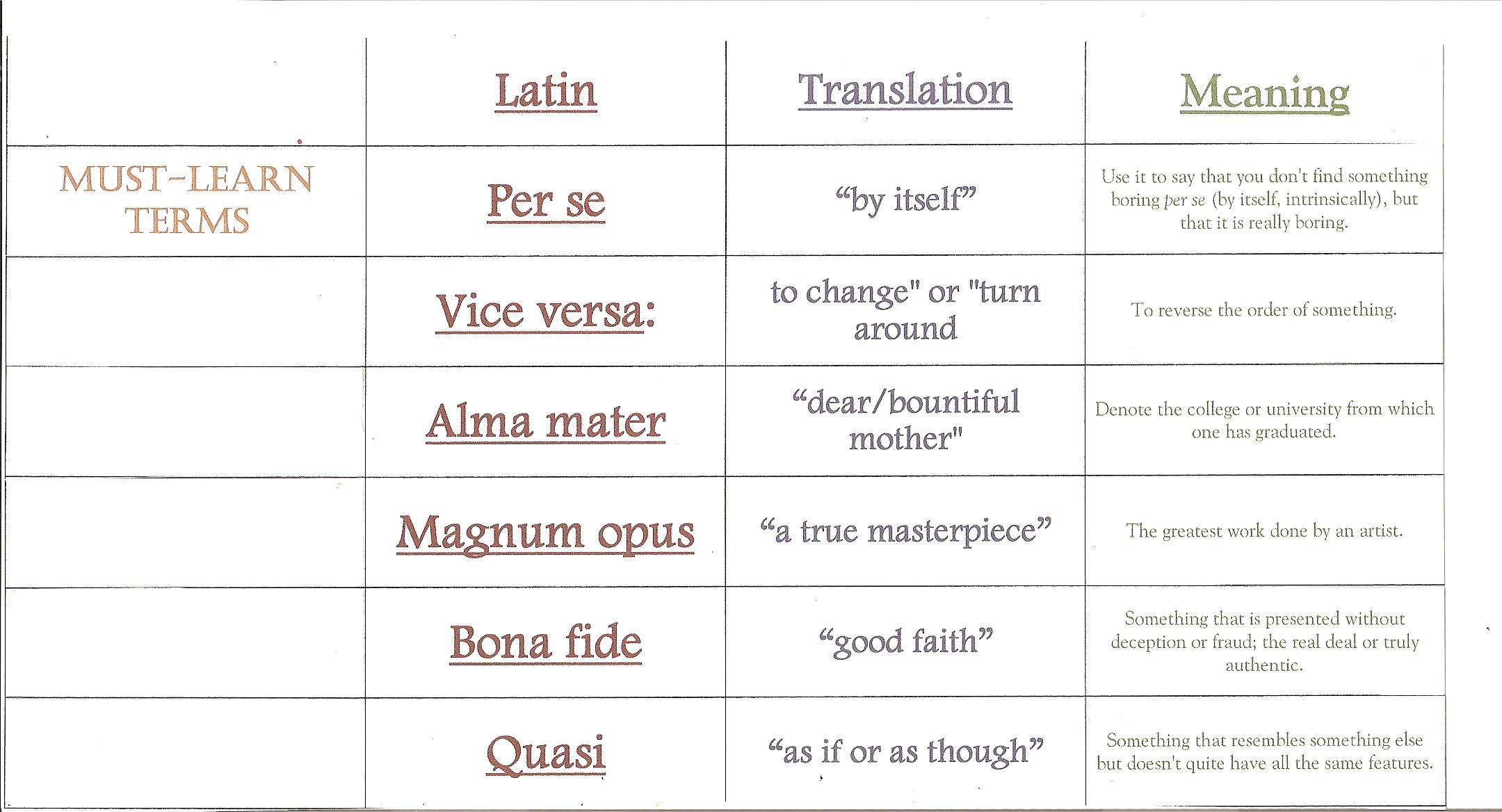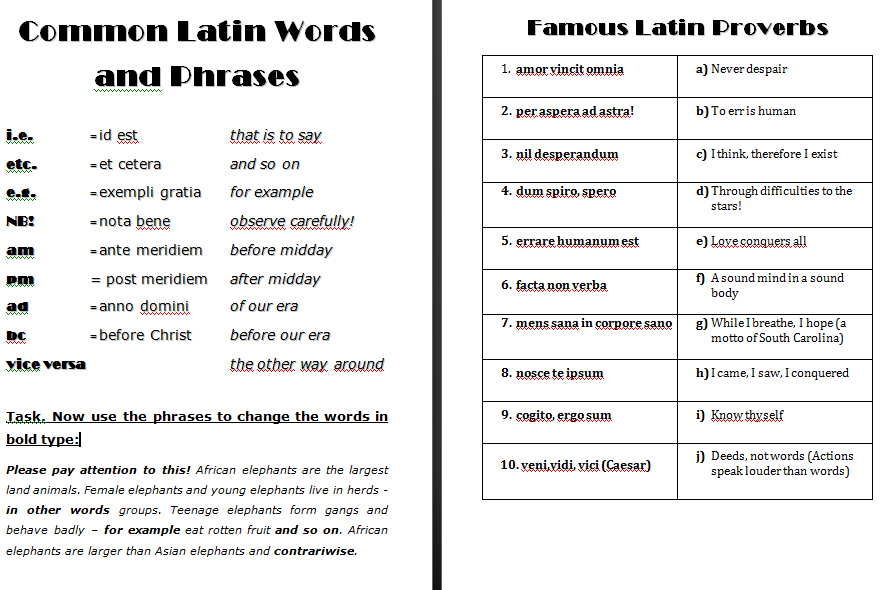Suffix. Definition. Example-agog, -agogue: leader: demagogue, pedagogue-cide: kill(ing) patricide, infanticide, herbicide. suicide-ectomy: cutting: appendectomy
Discover 53 French words you regularly use when you speak English (this probably includes some words you didn’t even know were French)!


A simple and powerful online Latin dictionary This dictionary was built to bring the power of William Whitaker’s Words into an easy-to-use online interface. It can understand almost all Latin inflections and implements a ranking system that gets you the …
Common Latin abbreviations used in English writing. Meaning, uses, examples, and frequent mistakes.






This is a list of Latin words with derivatives in English (and other modern languages).. Ancient orthography did not distinguish between i and j or between u and v. Many modern works distinguish u from v but not i from j. In this article, both distinctions are shown as they are helpful when tracing the origin of English words.
Two Hundred Essential Latin Words more or less. These are among the most common words in Latin. Taken together, they account for almost half the words in a typical prose text.
With 2,500 to 3,000 words, you can understand 90% of everyday English conversations, English newspaper and magazine articles, and English used in the workplace. The remaining 10% you’ll be able to learn from context, or ask questions about. However, it’s essential to learn the right English vocabulary words, so you don’t waste your time …
Did you ever think that those of us with Latin origins would actually know some Latin? Not necessarily! Although Spanish, French, Portuguese and Italian (among others) all originate from Latin
Latin Phrases in Common Usage in English. This page was last updated on May 13, 2018. The following table is a list of some Latin Phrases in common English usage.
The Simplified Spelling Board was founded in the United States in 1906. The SSB’s original 30 members consisted of authors, professors and dictionary editors. Andrew Carnegie, a founding member, supported the SSB with yearly bequests of more than US$300,000. In April 1906, it published a list of 300 words, which included 157 spellings that were already in common use in American English.


